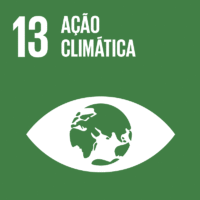Ciência_Iscte
Comunicações
Descrição Detalhada da Comunicação
Between the Countryside and the City Housing typologies for Sustainable Habitats?
Título Evento
ENHR 2022
Ano (publicação definitiva)
2022
Língua
Inglês
País
Espanha
Mais Informação
Web of Science®
Esta publicação não está indexada na Web of Science®
Scopus
Esta publicação não está indexada na Scopus
Google Scholar
Esta publicação não está indexada no Google Scholar
Esta publicação não está indexada no Overton
Abstract/Resumo
The development of housing typologies and of public spaces has received great attention in the history of architecture. Yet, the study of the habitat as a “housing/ green space” binomial remains underexplored. This presentation aims to underline the current need to create new and sustainable housing typologies associated with specific green spaces. This theme is not new, as throughout the 19th and 20th century the search for a new productive urban landscape was already central to the work of Leberecht Migge, Adolf Loos, Ildefons Cerdá and Patrick Geddes, among many others involved in the design and planning of cities.
The definition of sustainable human habitat, as well as the concerns expressed in international agendas - FAO and Habitat III - express the need for new realities for the future of cities. But what will be the architectural materialization of these desires, ambitions, and ideals? What examples in history bring us closer to the values of sustainability and self-sufficiency? And what about the present? To that extent, we analyzed three winning projects of recent public tenders, in three different urban situations in the territory of the Lisbon Metropolitan Area - Almada, Setúbal and Lisbon.
Here, through surveys and bibliographical review, we hope to contribute to the building of a catalog of referential solutions for constructing housing, public and green spaces that promote a direct relationship between the countryside and the city. The development of high density/low rise solutions, different scales of productive green spaces, and new interpretations of public space could serve as a basis for the creation of new urban solutions to promote better habitats and food self-sufficiency. Thus, the problem of “housing/ green space” articulation provides a unique point on which to articulate research, architecture and policy-making for the future.
Agradecimentos/Acknowledgements
--
Palavras-chave
urban planning,sustainable cities,green spaces,housing types,urban-rural
Classificação Fields of Science and Technology
- Geografia Económica e Social - Ciências Sociais
- Outras Ciências Sociais - Ciências Sociais
- História e Arqueologia - Humanidades
- Artes - Humanidades
- Outras Humanidades - Humanidades
Contribuições para os Objetivos do Desenvolvimento Sustentável das Nações Unidas
Com o objetivo de aumentar a investigação direcionada para o cumprimento dos Objetivos do Desenvolvimento Sustentável para 2030 das Nações Unidas, é disponibilizada no Ciência_Iscte a possibilidade de associação, quando aplicável, dos artigos científicos aos Objetivos do Desenvolvimento Sustentável. Estes são os Objetivos do Desenvolvimento Sustentável identificados pelo(s) autor(es) para esta publicação. Para uma informação detalhada dos Objetivos do Desenvolvimento Sustentável, clique aqui.

 English
English



